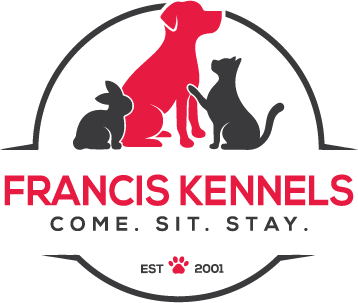Emilee Brewer
Some dogs love all dogs, some like a few, and others still only like themselves. Just like people, dogs have their preferences! There are three types of dogs: dog avoidant, dog selective, and dog tolerant. A puppy could be dog tolerant, but as they grow older they become more avoidant. But what do these three classifications mean and how do you determine what your dog is feeling? Let’s find out!
Dog tolerant means the dog is fairly social. They like other dogs or at minimum, they’re indifferent to them. Most puppies start as dog-tolerant. Different environmental factors and genetics can change their disposition as they get older. Socializing your dog is an excellent way to make sure they stay dog tolerant but just know that it may not always be enough. When socializing an animal, there’s always a chance something could go wrong which leads to them becoming dog selective.
Dog selective simply means they like some dogs and not others. When making my daycare groups, I’m always careful of who I put together. I’ve been in this position long enough to know each dog’s disposition pretty well. I know who likes who and who hates who. But we do occasionally get new dogs in that I know nothing about and I have to be very careful who I put them with. It’s always helpful when the parents fill out the little questionnaire explaining how their dog behaves with others, but sometimes they may not have the full picture.
Your dog may get along great with the neighbor's dog, but they also see them every day. This is an entirely new environment with new people and new dogs, and there’s no guarantee everyone will get along. The questionnaire gives me a basic idea of their behavior so I can better gauge who they’ll do well with. I also have dogs that I default to when I’m unsure. There’s a great dog that’s one of our regulars who I go to when I need to gauge a new pup. She’s calm but can also be playful, so she gives me a great meter on how the new guy is going to be.
Dog avoidant or dog reactive means they do not like other dogs. This could be from poor socialization, genetics, or their environment, could be they simply love the one-on-one attention and don’t want to share their person! It’s not necessarily a bad thing if they’re dog-avoidant. Proper training can help ease any anxiety or fear the dog may be feeling around others. But what’s nice about Francis Kennels is that we still take in dog-avoidant pups for daycare. They still get the enrichment and outdoor time of daycare but in a dog-free environment!
Understanding your pup's emotional state will help you determine how they’re feeling around other dogs. Some signs of distress to look out for is yawning, excessive panting, whale eye, and growling. They’ll also hold their mouth closed really tightly. These signs can help you decide when it’s time to take your dog out of the situation. Conversely, if your dog is having fun, watch out for a relaxed body. Tail will be wagging, their body can wiggle waggle too from happiness. When they’re happy, their mouth will be held gently and have a soft c-shape to it. Knowing the differences between these behaviors will help you determine if your dog is having fun with other dogs or about to freak out. Always closely monitor playtime so nothing bad happens!
So there it is. Is your dog avoidant, tolerant, or social? No one attitude is better than the other, and here at Francis Kennels, we can accommodate all three!

